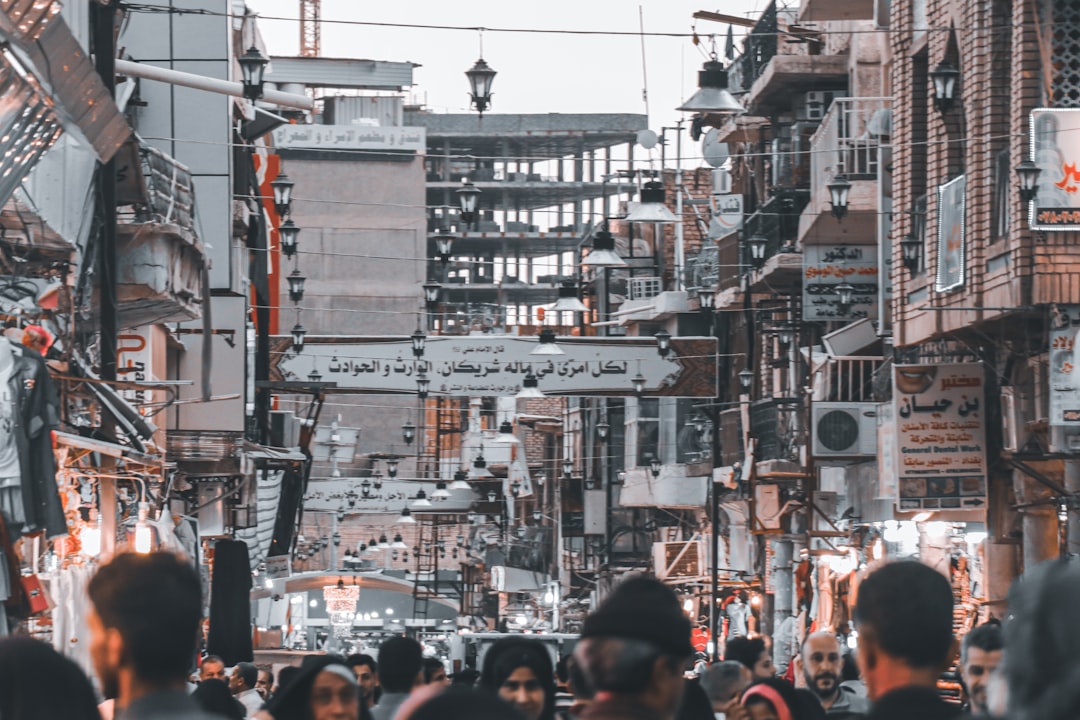Iraq caught in Iran-US crossfire
Iran is pushing Iraq to abandon US relations. US is trying to do the same by pushing Iraq to decrease Iranian influence on its territory. And with events heating up, Iraq will soon have to choose.
Recently, the Iranian government officially complained to Iraq about the US operating too freely on Iraqi territory and demanded Iraq to put a stop to it. At the same time, the US and Israel are mirroring those complaints, telling Iraq it allows Iran too much freedom to operate. The Iraqi government and territory may be host to a potential conflict between major international powers.
According to Iraqi security forces, a letter sent by Iran’s Quds force through Hezbollah to accuses the Iraqi government of being “a state of the US” because the US is doing more in Iraq than just training security forces. According to them, US drones and airplanes used to spy on Syria and Iran are taking off from Iraq and Iraq is not doing enough to stop it.
This letter followed other recent negative developments in the region. Earlier this month, 34 rockets were fired from Lebanon into northern Israel, and Iran is very likely to be behind those attacks. At the very least, they weaponizing the responsible groups. And because Iran does not border Lebanon, the only way to supply those weapons was to move them through Iraq and then Syria. After this, both the US and Israel demanded Iraq stop supporting Iran by allowing them to move weapons and avoid sanctions through Iraq’s territory.
Weapons movement is just a consequence of an even more pressing issue—Iranian military bases in Iraq, bases that even the Iraqi government can’t enter. The most notorious such base is Jurf Al Sakhar, once a Sunni village but now a Hezbollah and Quds force base. The local population of Jurf Al Sakhar were forcefully displaced, and of course the West is demanding the base be closed and the local population allowed to return.
This Iraq-US clash which is putting pressure on Iraq’s governmental relations with the two regions is only half of the problem for Iraq leadership. In addition to discord at the governmental level, tensions on the street have also grown over the last month as conflict between the Sunni and Shia in Iraq have refired for a very unexpected reason—a recent increase in the popularity of Baath Party.
A month ago, Saddam Hussein's oldest daughter announced she would be back with more power and there is a revival of Baath party music and Saddam Hussain pictures on Iraqi social media. Pro-Iranian forces see the phenomenon as a psychological operation from the West. According to them, this notion that the Baath party will make a comeback could empower the Sunni population of Iraq. After the war with ISIS, the Sunni’s have been marginalized by pro-Iranian Shia authorities, and a resurgence of Sunni power is a threatening proposition for pro-Iranian groups.
So in preparation for a possible military confrontation and civilian uprising against pro-Iranian forces in Iraq, Iran is moving more weapons to their Iraqi bases, and particularly to those located in Sunni majority towns. And feeling pressure from not only official US but local population, pro-Iranian militias intelligence increased arrests of people they suspect of providing information to the US or those they think could be working for Baath party.
Iran’s concern is understandable, as is why they are pushing Iraq to abandon US relations. US is trying to do the same by pushing Iraq to decrease Iranian influence on its territory. And with events heating up, Iraq will soon have to choose.
Sadly, regardless whatever decision the Iraqi government makes, it will be a dangerous one for its citizens.


